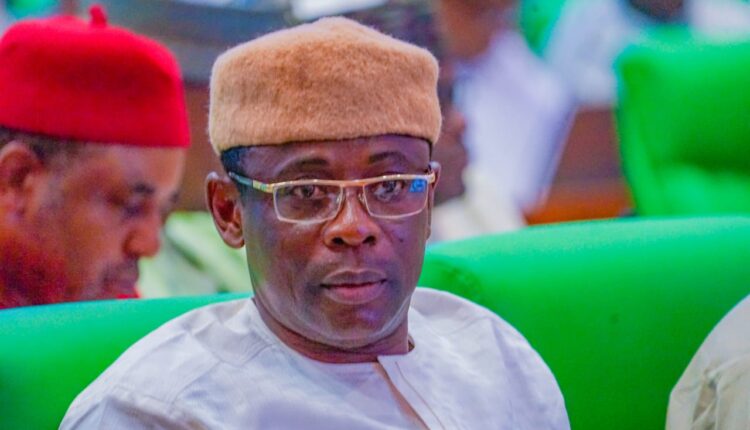A bill seeking the alteration of the constitution of the Federal Republic of Nigeria, 1999 (as amended) to allow for the creation of additional state in the South South region of the country has passed Second Reading in the House of Representatives.
The bill titled, “A Bill for an Act to Alter the Constitution of the Federal Republic of Nigeria, 1999(as amended) to Create a new State in the South South region known as Ogoja State and for Related Matters (HB.1555)” is sponsored by Hon.Godwin Offiono and three other members.
Hon. Offiono, a member of the Peoples Democratic Party (PDP) represents Ogoja/Yala Federal Constituency of Cross River State.
According to Hon. Offiono, the essence of the bill is to create equity to the number of states in the region to seven like there are some other parts of the country.
Moving the motion for the second reading of the bill, Offiono said that, the whole “essence of this bill is rested on equity.”

After the bill was passed for second reading, it was referred to the House Standing Committee for the review of the constitution headed by the Deputy Speaker of the House, Hon. Benjamin Okezie Kalu.
Recall that on July 11, 2024 a similar bill was sponsored by Hon. Amobi Godwin Ogah, Hon. Miriam Onuoha, Hon. Kama Nkemkama, Hon. Princess Nnabuife and Hon. Anayo Onwuegbu seeking the alteration of the constitution to create additional states in the South-east also passed second reading in the House.
Hon. Amobi Ogah
Leading debate on the bill, Hon Ogah stated that, “The establishment of Etiti State is not just a matter of administrative convenience but a step towards ensuring balanced regional development and effective governance.
Speaking further, Hon. Ogah, a member of the Labour Party (LP) stated thatm the creation of Etiti State will be a positive response to “aspirations of the people of a very important region to this country and aligns with the principles of equity and inclusivity enshrined in our democratic ideals.”


